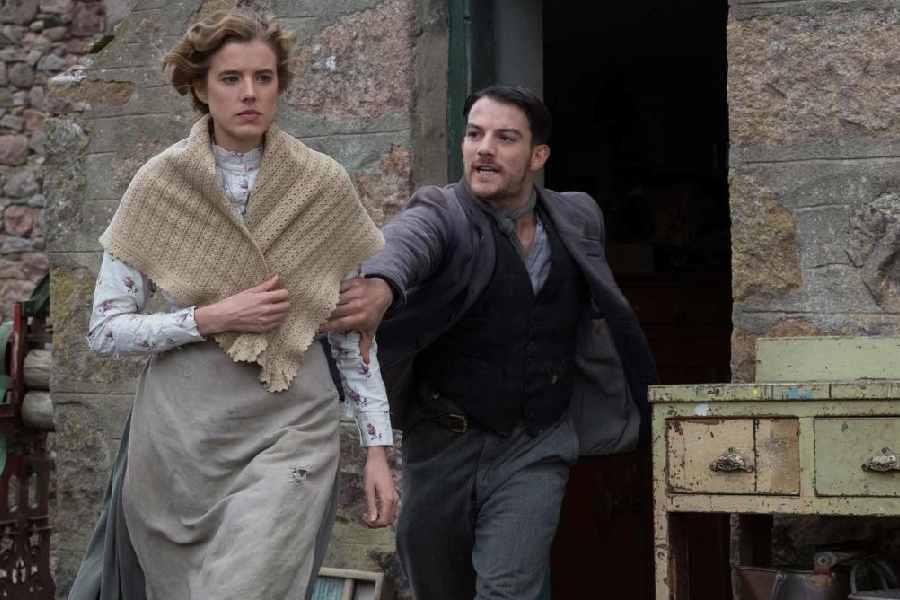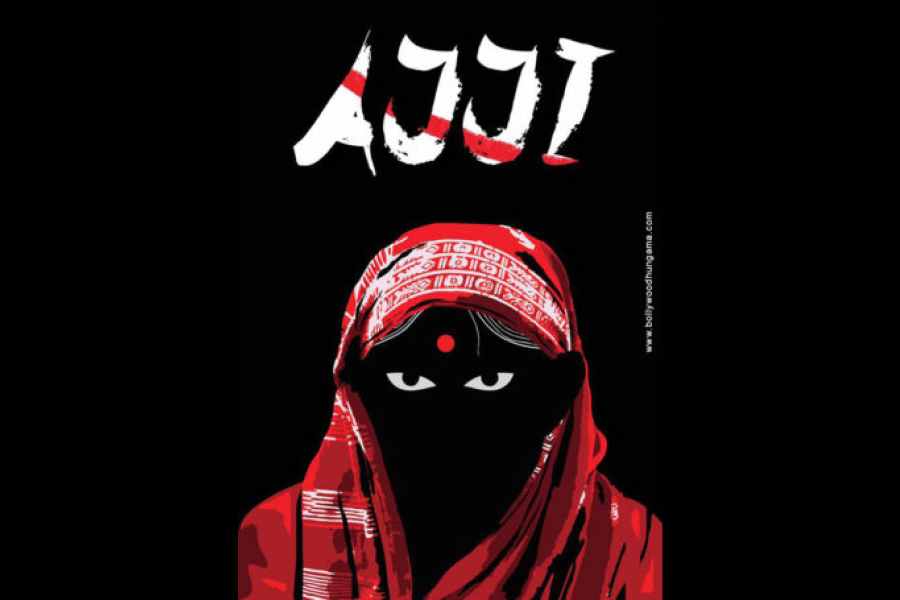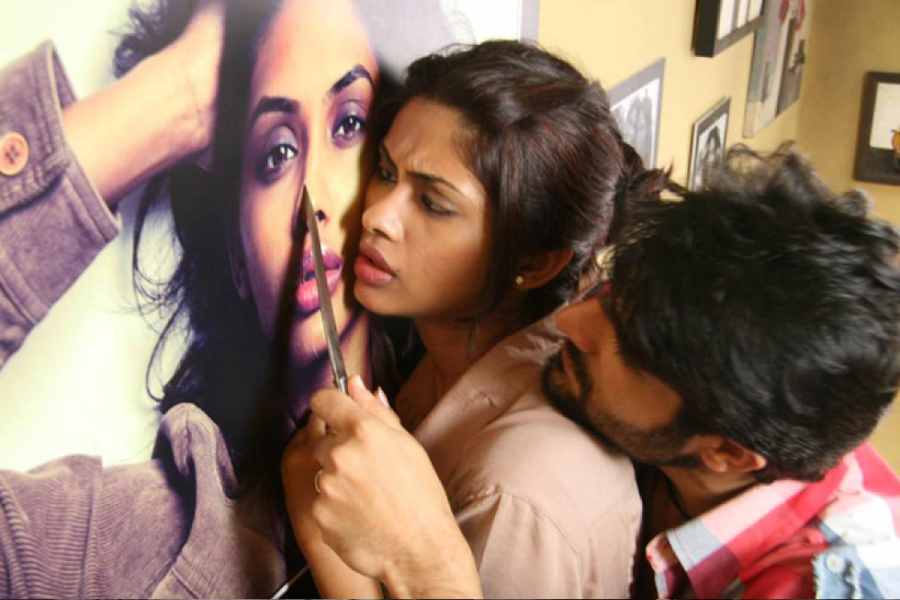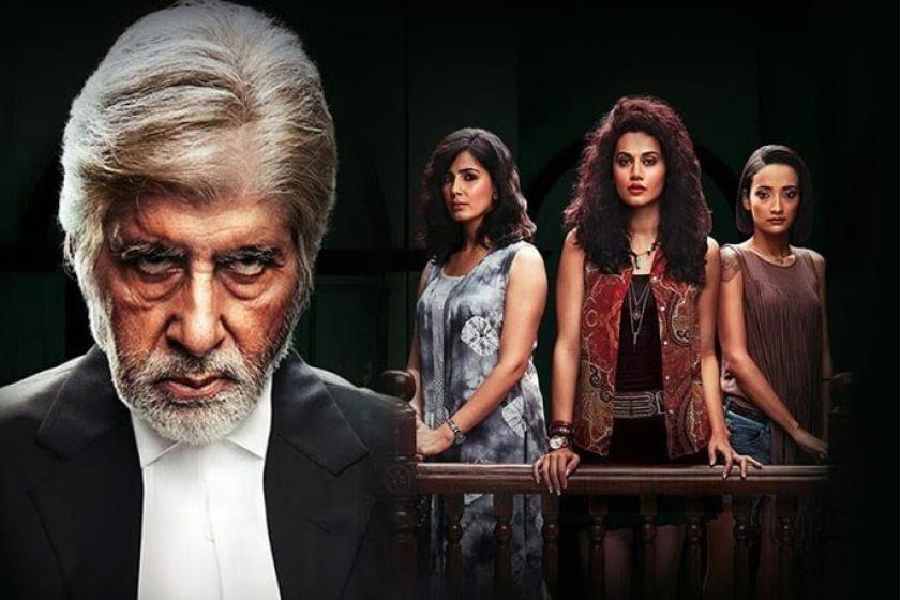Justice presents itself as a far-fetched thought when for years, we as a society have struggled to even believe women as victims of rape, assault and multiple other forms of discrimination. Films, item songs and serials continue to objectify women. Amongst a plethora of such entertainment offerings, some films try to narrate the brutal truth that snickers behind the lenses of misogyny and patriarchy. t2 has curated a list of some films that you should watch if you want to educate, change, understand or feel heard. These films can be triggering because they are painstakingly close to reality, so tune in accordingly.
Pink
Comprising an ensemble cast featuring Amitabh Bachchan, Taapsee Pannu, Kirti Kulhari, Andrea Tariang, Angad Bedi, Tushar Pandey, Piyush Mishra, and Dhritiman Chaterji, Pink shows the naked truth behind India’s rape culture. Directed by Aniruddha Roy Chowdhury in what was the Calcutta filmmaker’s debut in Hindi, this 2016 film revolves around three independent women living in Delhi who are assaulted on a night out partying. Mirroring the societal reality, when taken to court, questions on the women’s character, clothes, drinking, smoking and other lifestyle choices are raised while a retired lawyer, played by Bachchan, defends them in a way that will be etched in the history of Indian cinema and the audience’s hearts for a long time. The message of “No means no” resonates throughout the film which sees victims being mentally tortured amid the strenuous judicial process that needs to be followed in such cases.
Execution, acting, storyline and cinematography are enough to give you goosebumps. Pink serves as a reminder that a girl falls victim to rape every 16 minutes in India. After receiving universal critical acclaim, Pink was remade in Tamil as Nerkonda Paarvai and in Telugu as Vakeel Saab. This listicle will always be incomplete without Pink.
Guilty

Nanki Dutta is a songwriter who plays and sings with her boyfriend Vijay Pratap Singh aka VJ in the college band. Life is turned upside down for Nanki as Tanu, a new student in their college accuses VJ of rape in the light of the #MeToo movement. Nanki is shown as a small- town girl who would always flirt with VJ and would not let go of a single moment to be close to him. Nanki, like everyone else, believes in VJ’s innocence but is skeptical considering the inconsistencies in VJ’s narration of the night and other evidence. VJ, the son of an influential political leader is finally proven not guilty. Around the same time Nanki speaks to Tanu and realises that her gut feeling was right and VJ actually raped Tanu on Valentine’s night. By the time she realises it, she finds herself in the party thrown by VJ’s father to celebrate his “innocence”.
Guilty was released during a time when several accusations of #MeToo were deemed irrelevant due to lack of proof. The film, headlined by Kiara Advani, is a triggering watch due to the relatability factor. Also, the need to believe the victim is emphasised irrespective of society’s preconceived notions about her — a message crucial for our country.
Sunset Song

Set against the backdrop of the First World War, the Terence Davies directorial stars Agyness Deyn, Peter Mullan and Kevin Guthrie. The Scottish film narrates the heartrending story of Chris, who lives with her abusive father, empathetic mother and industrious brother. Her mother gives birth to twins but in later developments, confesses to Chris that her father raped her. Soon after, the mother dies by suicide and poisons her newborn twins too. Chris, who was a bright student, quits studies and joins her brother to help their aged father on the farm. Before dying, her father also tries to rape Chris but fails due to physical immobility. Later, she gets married to Ewan and has a loving husband but then the World War looms large. Her husband enlists as a part of compulsory conscription and on returning becomes a changed man. Chris is then physically abused and raped by her husband who is now abrasive. After parting on sour terms with his wife, he goes back to the battle field and eventually dies. Chris’s friend tells her that Ewan was executed as a deserter because he wanted to rush home to her as he couldn’t kiss her goodbye.
The film shows the stark reality of marital rape and its consequences on women. The BAFTA Scotland Award for Best Feature Film winner remains relevant in today’s day and time.
Ajji

The Devashish Makhija film was the third film about rape to release in a year that saw Kaabil, Maatr and Mom. Unlike the others, Ajji deals with a grim setting of a chawl. A child is found raped in a garbage dump and her family is convinced (read: manipulated) by the police to not file a complaint since the culprit is the son of a politician. Sounds familiar?
What follows is what makes Ajji different from other revenge dramas. The grandmother does not suddenly take up the unrealistic reel-world act of vigilantism but instead prepares herself because she already knows how she wants it to end. She watches the rapist in his hideout, sometimes masturbating to porn and sometimes drunkenly fornicating with a mannequin. She watches herself being bullied by her clients. She watches her granddaughter bleed constantly. She watches the cop blackmail her family. She watches the crudeness of daily life and Makhija pushes his underdog to the point where there is no return. The film is an uncomfortable watch which is exactly how it should be when the message is against child rape. It will shake you when Manda asks her grandmother if the bleeding means that she has finally become a woman. Ajji is unforgettable and represents reality through the unfiltered lenses of cinema.
Kill The Rapist?

The 2015 Sanjay Chhel directorial asks the pertinent question that can a woman take the path of violence when the system fails to get her justice against heinous crimes? Starring Anjali Patil, the film presents a disturbing account of stalking, threatening and rape of a woman carried out by a thug. Even when she approaches the cops for help she is met with backlash and a female police officer says, “Cycle ki chori aur rape bahut common hai yahan par. (The theft of cycles and rapes are very common here). The visuals are deeply unsettling and sees the protagonist along with her friends take matters into their own hands. You are left with a dry throat by the end of Kill The Rapist?











